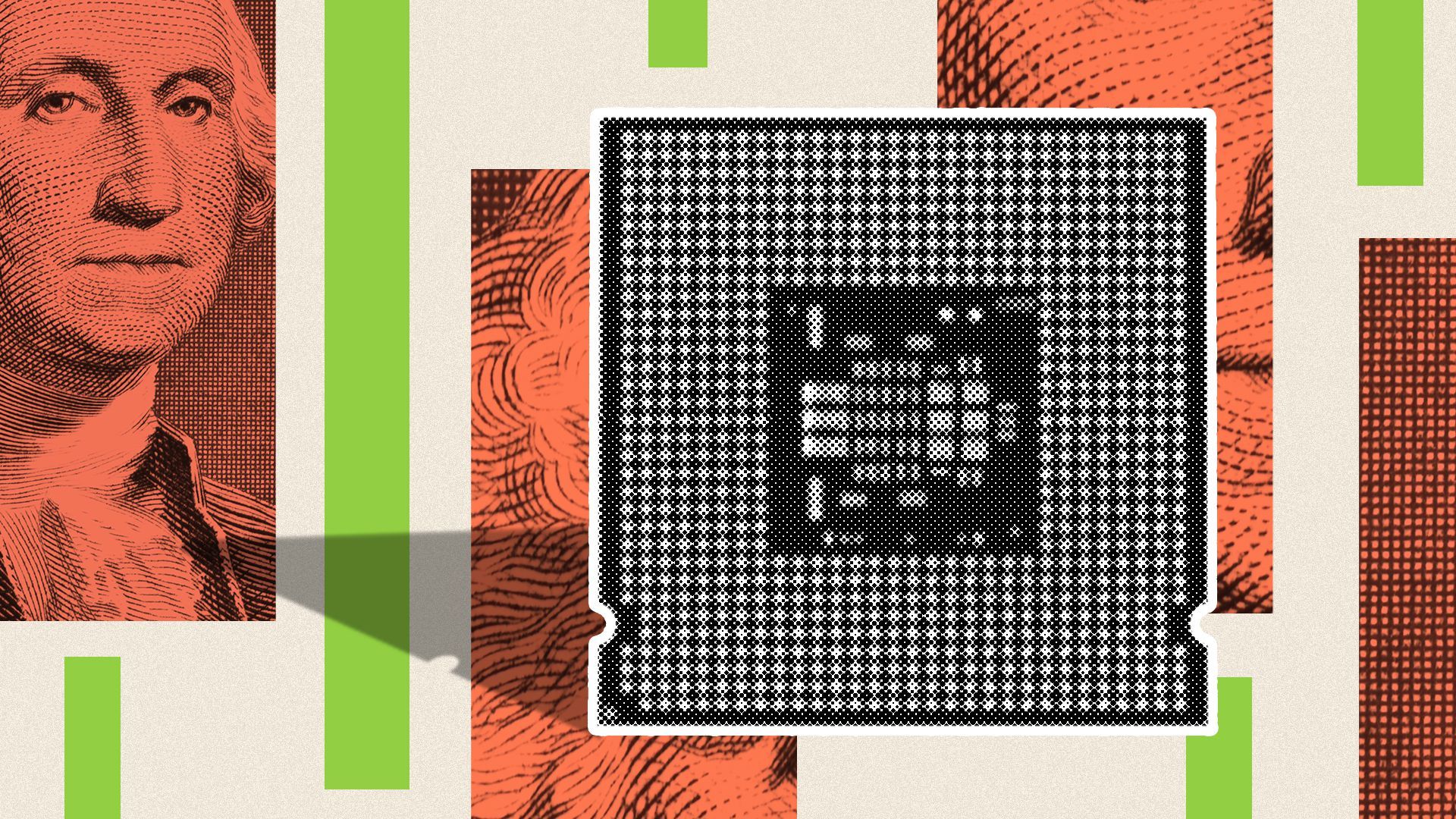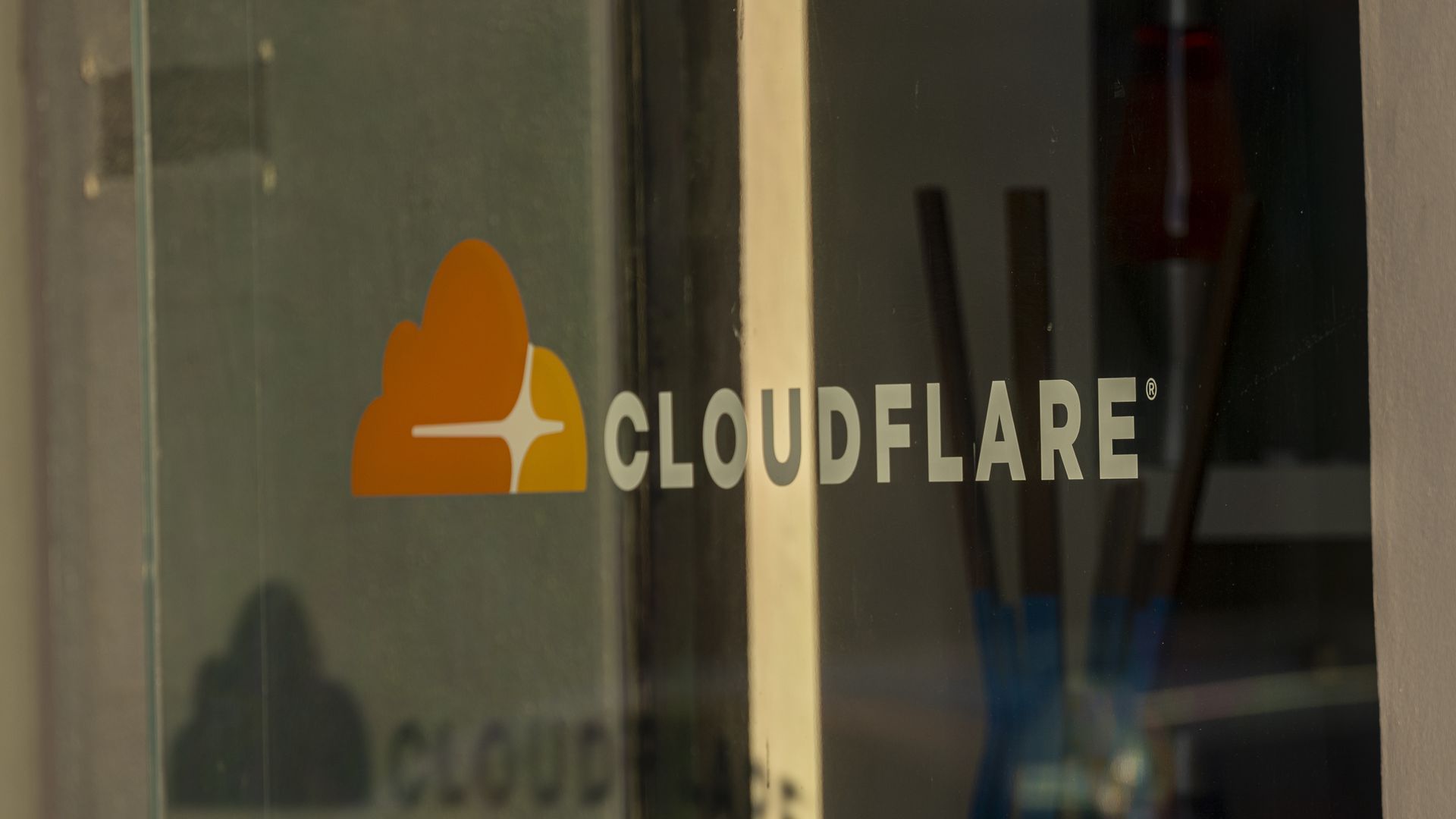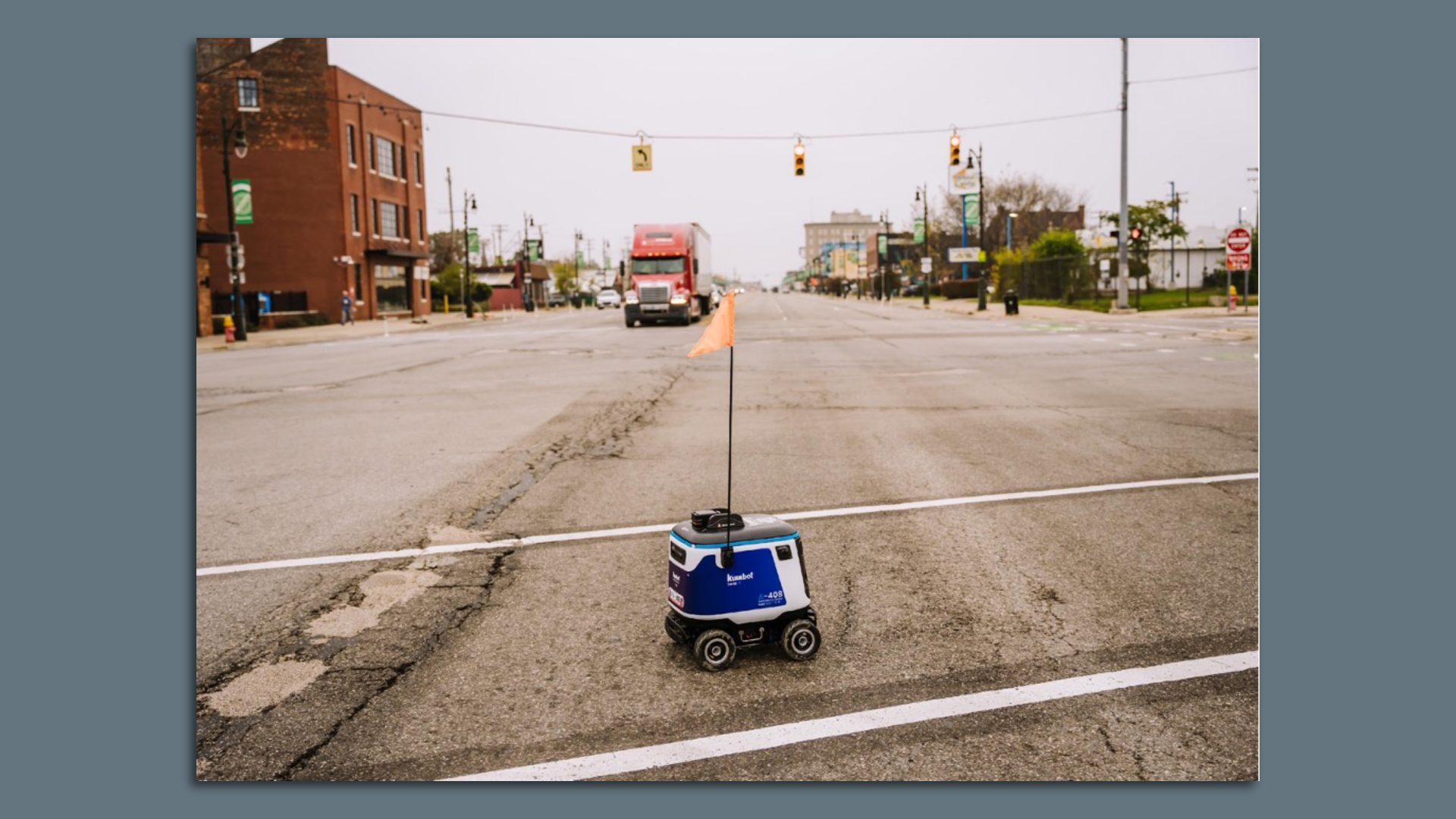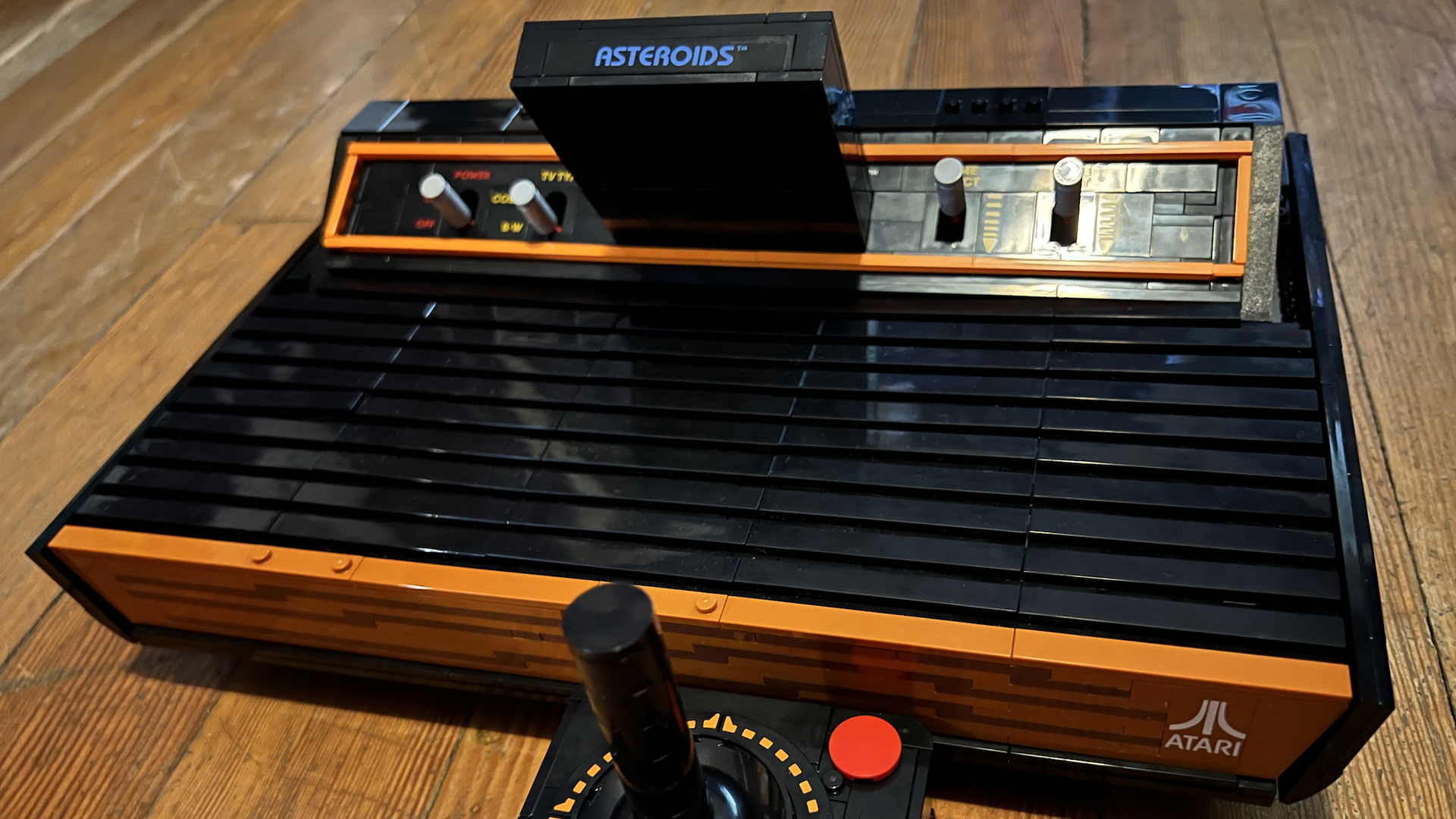| | | | | | | Presented By Computer & Communications Industry Association | | | | Axios Login | | By Ina Fried · Sep 06, 2022 | | Welcome to post-summer! Even if it doesn't feel like it in sweltering San Francisco. Today's newsletter is 1,336 words, a 5-minute read. | | | | | | 1 big thing: What's behind chip giants' lawsuit |  | | | Illustration: Annelise Capossela/Axios | | | | Arm's lawsuit against Qualcomm, filed last week, is something of a head-scratcher. Sources tell Axios that, while the dispute is mostly about dollars, it's complicated by just how much money is at stake and the fact that the two companies remain dependent on one another. Why it matters: The profoundly essential chip industry operates via a complex web of licensing agreements, and lawsuits like this — though not unheard of — mark a rare breakdown in business as usual. Catch up quick: Arm sued Qualcomm last week, alleging that Qualcomm breached its contractual duties after it bought chip startup Nuvia. - Qualcomm and Nuvia both have licenses to use Arm's chip designs, but Qualcomm's terms are seen as much more favorable than Nuvia's given its huge volumes and the fact that its contracts date back many years.
- Qualcomm would likely prefer to simply include any use it makes of Nuvia's technology under its existing terms with Arm. Arm says Qualcomm needs to negotiate a whole new deal.
- There's a lot more wrinkles, but that's the heart of the fight.
The big picture: Qualcomm is one of Arm's biggest customers, if not the biggest. Nearly all its major chips use Arm's technology in one way or another. But there is little love lost between the two companies. - Arm wishes Qualcomm would pay higher royalties, while Qualcomm would love to avoid having to write big checks to Arm at all.
Between the lines: There's even more to the animosity than that, sources tell Axios. Arm is still smarting from the collapse of its deal to sell itself to Nvidia, and Qualcomm helped successfully lobby against that deal. - That, in addition to Qualcomm's Nuvia purchase, took what was already one of the coolest partnership relationships in Arm's universe and put it in the deep freeze.
Also, Apple looms large behind all these players. - Apple is suing Nuvia founder Gerard Williams, a former Apple employee, arguing that he planned Nuvia's technology and recruited other Apple employees while still working for the iPhone maker. Nuvia, which initially aimed to sell chips for use in servers, had yet to bring products to market before selling to Qualcomm.
- Qualcomm has talked about using Nuvia's technology more broadly, including to help power laptop chips that could compete with Apple's hugely successful M-series processor.
- That gives Apple some aligned interests with Arm, especially since Arm is suing to force Qualcomm to destroy any technology that emanates from Nuvia and uses Arm's technology. Apple would be very happy if Nuvia's technology never saw light of day.
Nuvia could help Qualcomm become more independent of Arm, financially and technically. - Prior to buying Nuvia, Qualcomm had given up on an effort to design its own processor cores, switching back to Arm's off-the-shelf designs.
- That arrangement is typically a more lucrative type of license for Arm.
The bottom line: Billions of dollars are at stake, depending on what happens to the Qualcomm-Arm relationship. |     | | | | | | 2. Cloudflare drops Kiwi Farms harassment site |  | | | Photo: David Paul Morris/Bloomberg via Getty Images | | | | Web infrastructure and security services provider Cloudflare announced Saturday it was immediately blocking the Kiwi Farms site known for organizing the harassment and targeting of transgender people, Axios' Scott Rosenberg reports. Driving the news: In the face of an activist campaign pressing the company to stop providing services to Kiwi Farms, Cloudflare had seemed to be digging in its heels, per an Aug, 31 blog posting by CEO Matthew Prince. Yes, but: "The rhetoric on the Kiwifarms site and specific, targeted threats have escalated over the last 48 hours to the point that we believe there is an unprecedented emergency and immediate threat to human life unlike we have previously seen from Kiwifarms or any other customer before," Prince wrote in a new post Saturday. Why it matters: Cloudflare has long held that its role as a provider of back-end website services means that it should not play a role in assessing or censoring the content its customers distribute. Catch up quick: Kiwi Farms is a 10-year-old site that emerged from 8chan and has been used to organize campaigns aimed at trans, autistic and other individuals. In several cases, targets of such campaigns have committed suicide. - Cloudflare's services are widely used by website publishers to distribute content efficiently and to protect their sites from denial-of-service attacks.
What they're saying: - Prince: "This is an extraordinary decision for us to make and, given Cloudflare's role as an Internet infrastructure provider, a dangerous one that we are not comfortable with. ... In this case the imminent and emergency threat to human life which continues to escalate causes us to take this action."
- Protest organizer Clara "Keffals" Sorrenti, a trans Twitch streamer and target of a Kiwi Farms harassment campaign, in a statement on Twitter: "This is a historical moment where thousands of people have stood up and taken a stance against online harassment and hate."
After spending most of the long weekend offline, Kiwi Farms returned early Tuesday at a new web address and with a new service provider, Vanwatech, based in Vancouver, Washington. The company, founded in 2019, per Bloomberg, has a record of hosting controversial and far-right sites. - "This is an organized attack," Kiwi Farms owner Josh Moon said in updates posted on Telegram.
- Moon argued that protesters were "trying to frame the forum for their behavior" and said journalists were blaming the forum for its users' postings.
|     | | | | | | 3. Delivery robots are not ready to roll |  | | | A Kiwibot delivery robot tries to cross Michigan Ave. in Detroit. Photo courtesy of the city of Detroit | | | | Sidewalk delivery robots are cute and cool, but pilot tests in four U.S. cities found that it takes more than smart technology for a successful deployment, Axios' Joann Muller reports. Why it matters: Automakers and tech giants are pouring billions of dollars into everything from sidewalk bots to self-driving cars and delivery trucks, and regulators are scrambling to figure out how to manage them. - Often overlooked: Do they actually make people's lives better?
Driving the news: The pilots — in Pittsburgh, Miami-Dade County, Detroit and San Jose — originally sought to examine the socioeconomic changes that autonomous vehicles might bring if widely deployed. - The project, supported by $5.25 million from the John S. and James L. Knight Foundation, intended to test the impact of passenger robotaxis, but organizers switched to automated delivery robots during the pandemic.
Details: The cities partnered with Kiwibot, a maker of sidewalk delivery bots, to test different use cases on real streets and to explore ways to engage the community in decision-making. What they found: In some cases, it wasn't the robot that failed, but the local infrastructure. - In Pittsburgh, for example, robots had difficulty navigating rough sidewalks with overgrown bushes.
- In Detroit, robots had a hard time making it across wide boulevards before the light turned red.
Between the lines: Autonomous delivery works in controlled environments, but is not ready to take over critical tasks such as delivering meals or medication for elderly shut-ins. - A report, scheduled for release later today, offers lessons for how cities can deploy AVs, pointing out that success depends on more than just the technology.
|     | | | | | | A message from Computer & Communications Industry Association | | Congress: Get your priorities in order | | |  | | | | In poll after poll, Americans are making it clear they want Congress to focus on the economy, not more tech regulation. With inflation high and a recession looming, why are some in Congress focused on breaking Americans' favorite digital services? Learn more. | | | | | | 4. Take note | | On Tap - It's a very busy week in tech events. Code Conference, runs today through Thursday in Beverly Hills (I'll be there). Apple has its iPhone event on Wednesday (with Tim Cook then traveling to LA to speak on a panel at Code with Jony Ive and Laurene Powell Jobs).
Trading Places - Apple chief privacy officer Jane Horvath is leaving for law firm Gibson, Dunn & Crutcher, per Bloomberg.
ICYMI - India is putting $10 billion toward expanding domestic chipmaking efforts. But a lack of sufficient workers and unstable infrastructure could hamper efforts. (Financial Times)
|     | | | | | | 5. After you Login |  | | | Photo: Ina Fried/Axios | | | | I had a lot of things to do before I headed out today for three weeks of work travel, not least of which was to finish this Lego Atari 2600 set that the company kindly sent along. My clothes may not be put away, but the console is built. Priorities! |     | | | | | | A message from Computer & Communications Industry Association | | Americans oppose new regulations amid inflation worries | | |  | | | | In recent polls, 68% of Americans said inflation was the most pressing national issue, while only 3% saw antitrust tech regulation as a priority. Further, 70% of voters said they oppose Congress' proposed new antitrust regulation for tech companies. Learn more. | | |  | | Are you a fan of this email format? It's called Smart Brevity®. Over 300 orgs use it — in a tool called Axios HQ — to drive productivity with clearer workplace communications. | | | | | | Axios thanks our partners for supporting our newsletters. If you're interested in advertising, learn more here.
Sponsorship has no influence on editorial content. Axios, 3100 Clarendon Blvd, Arlington VA 22201 | | | You received this email because you signed up for newsletters from Axios.
Change your preferences or unsubscribe here. | | | Was this email forwarded to you?
Sign up now to get Axios in your inbox. | | | | Follow Axios on social media:    | | | | | |








No comments:
Post a Comment